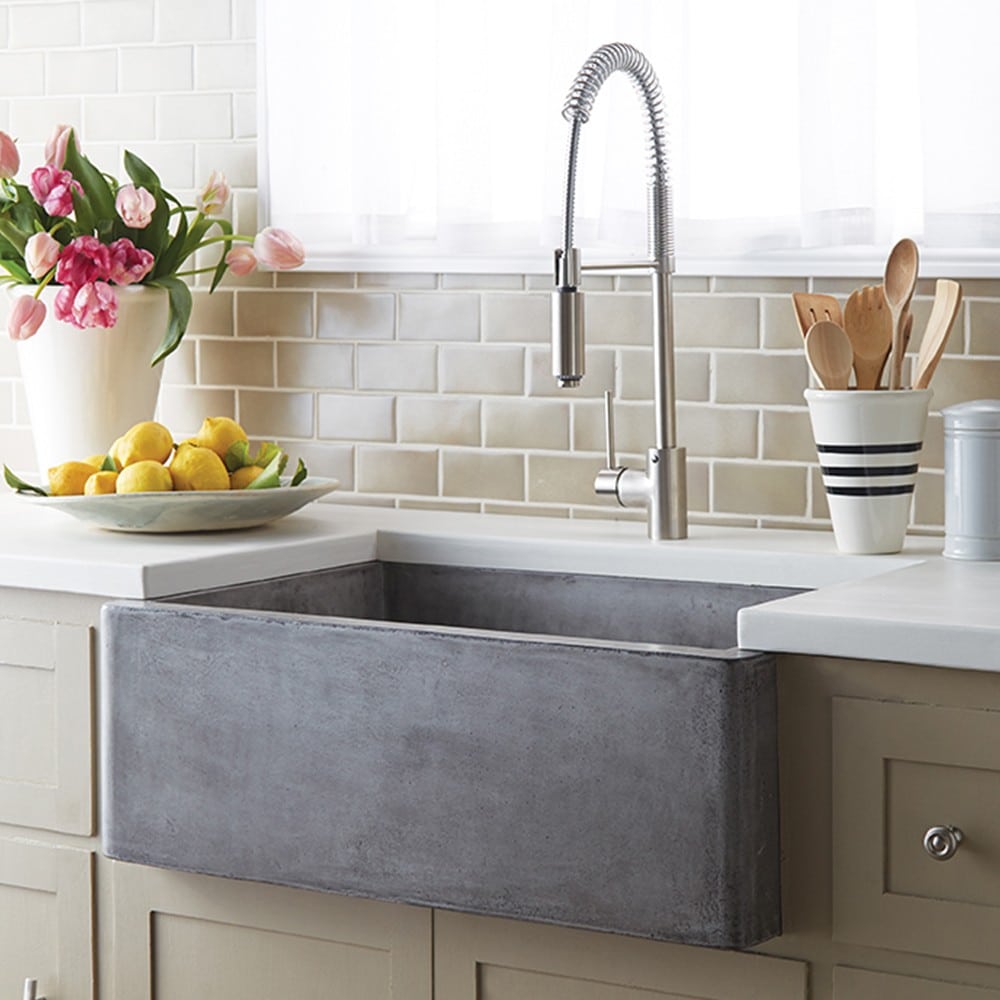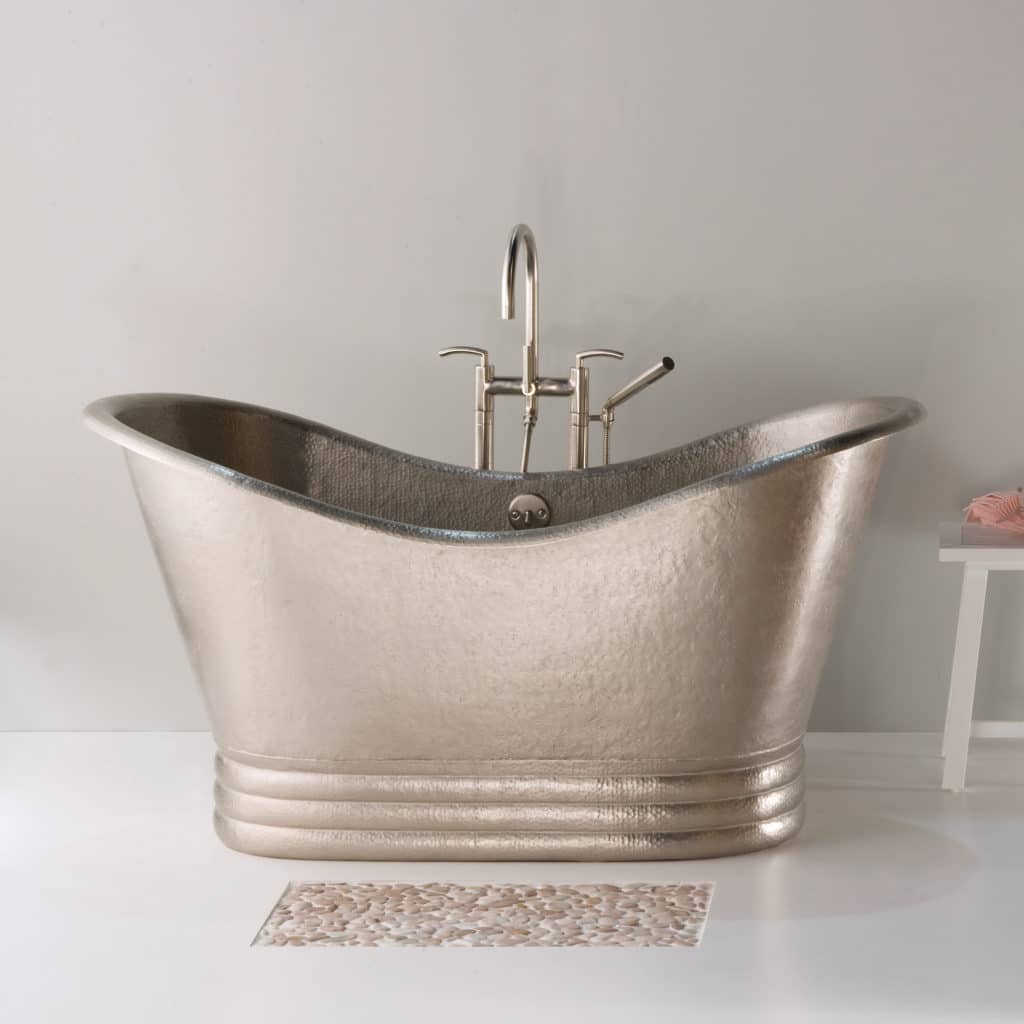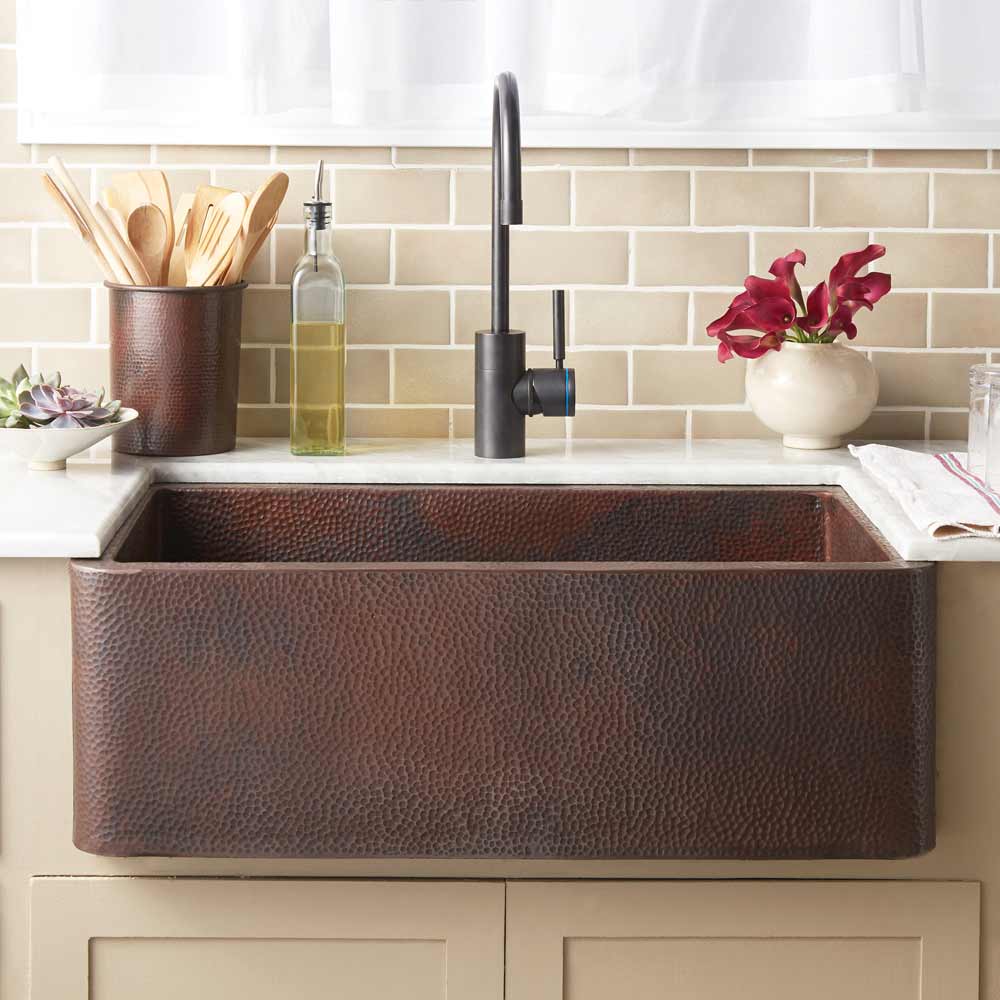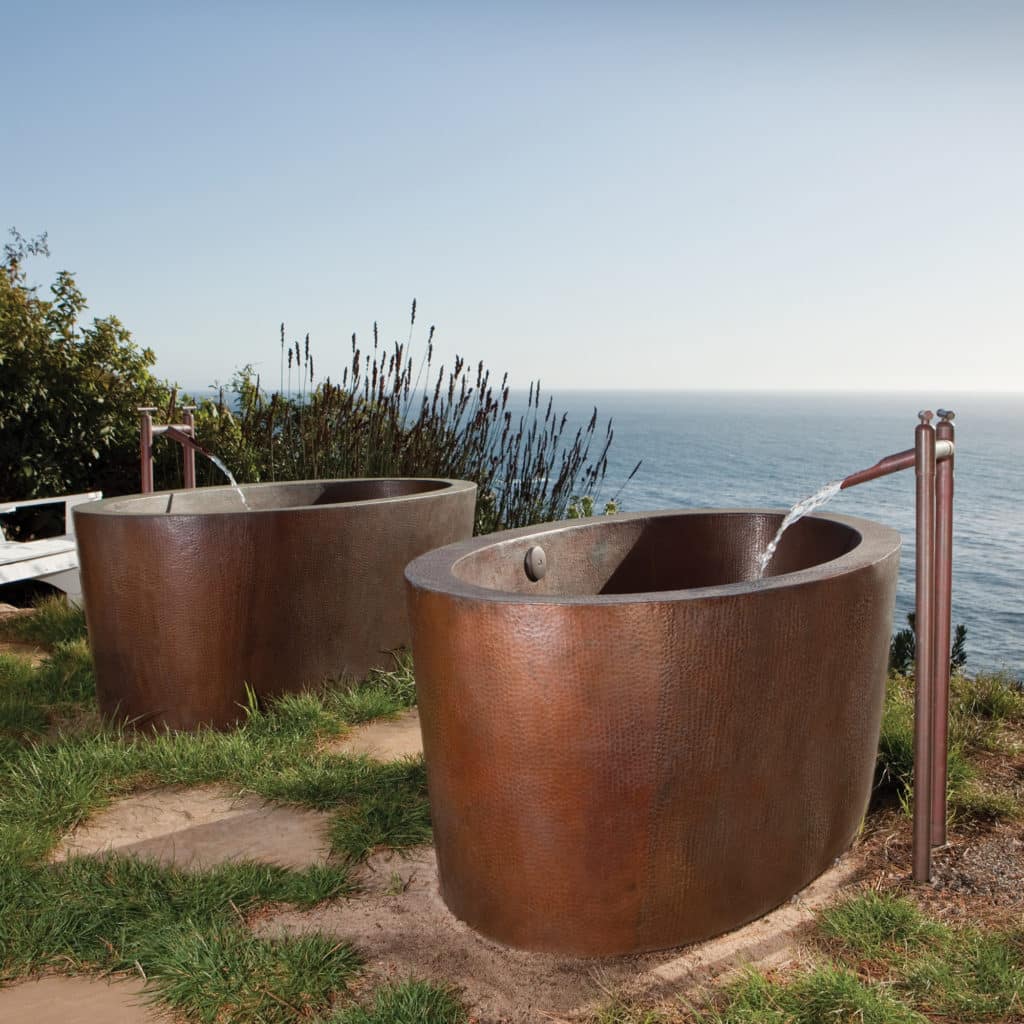Kitchen Idioms – Everything But the Kitchen Sink
The Story Behind 10 Familiar Kitchen and Bath Sayings

Idioms insert a punch of personality and a dash of color to the English language. They’re like the inside jokes shared by an entire nation, except that we don’t always get the joke. That’s where this blog post comes in: From “tub thumping” to “dull as dishwater,” we’ve done the research to uncover the story behind 10 of the most interesting kitchen-and-bath-themed idiomatic expressions, with origins ranging from historic to hilarious.
1. “Everything but the kitchen sink”
The idiom was born around WWII when as many household items as possible were contributed to the war effort—including all metal, to be used for the U.S. arsenal. However, the old ceramic and cast iron kitchen sinks generally stayed put, deemed too heavy. Had the Native Trails copper farmhouse sink or NativeStone® concrete sinks been around back then, we like to think their owners wouldn’t have been able to part with them either.

2. “Throw out the baby with the bath water”
This expression fell into use in the 1500s in Germany and was derived from the German proverb “das Kind mit dem Bade ausschütten.” Among those who have famously used it: Martin Luther, Johannes Kepler, Johann Wolfgang von Goethe, Otto von Bismarck, and Thomas Mann, though its earliest recorded use was in 1512 in Thomas Murner’s Narrenbeschwörung (Appeal to Fools), which includes a woodcut illustration of a woman discarding a baby along with her bathwater. Its meaning: When eliminating the bad, don’t also—in your haste—throw out the good.
3. “Every tub must stand on its own bottom”
First coined by John Bunyan in his 1678 allegory Pilgrim’s Progress, this saying is used to encourage independence or self-sufficiency.

4. “Tubthumping”
Most often used in relation to a political campaign or speech, this saying doesn’t stray far from the similar “Bible thumping,” as it’s designed to call to mind a preacher so aggressively proselytizing as to be “thumping” the pulpit for emphasis. The “tub” part of it is thought to have come from an outdoor orator who used an inverted tub as an informal lectern or from the use of wash tubs as improvised drums during demonstrations.

5. “If you can’t stand the heat, get out of the kitchen”
Harry S. Truman is credited with originating this expression. In 1949, he warned his staff not to listen to criticism about their appointments, saying, “I’ll stand by [you], but if you can’t take the heat, get out of the kitchen.” Truman is also responsible for the phrase “the buck stops here.”
6. “Kitchen sink realism” or “kitchen sink drama”
Used as a descriptor generally pointing to domesticity and is used to explore social and political issues. In British culture during the late 1950s and early 1960s, an artistic movement known as kitchen sink realism debuted in theater, art, literature, and film depicting unhappy working-class young men whose lives unfolded in grim settings: cramped apartments and dark pubs. (Alas, they didn’t have access to a Native Trails farmhouse sink, which would certainly have made their spaces less grim.) Expressionist painter John Bratby began the movement with his colorful portrayal of everyday objects. Among them: a kitchen sink, though Bratby also famously painted toilets.

7. “Dull as dishwater”
This saying was born of another one—“dull as ditchwater”—which dates back to the 1700s. At some point during the first half of the 1900s “dull as dishwater” became the more popular of the two, followed not long after by the “dishwater blond” descriptor of dingy dark blond hair.
8. “Take a bath”
An investor who has experienced a large loss from an investment or whose shares have declined significantly is said to have taken a bath. The American Heritage Dictionary of Idioms attributes this slang to the concept of being “cleaned out” financially.

9. “In hot water”
If you have ever heard of someone landing in hot water with his wife or boss, you knew he was in big trouble. As for where the idiom, which dates back to the early 1500s, comes from, some speculate it’s because unwelcome guests were once shooed away with a kettleful of boiling water. In England in 1532, Henry VIII made death-by-boiling a legal form of capital punishment; in other words, the “in hot water” saying is figurative today, but it was once excruciatingly literal.
10. “An early bath”
Most frequently used in regards to athletics, “taking an early bath” means being forced to make a premature departure, as in “he’s going for an early bath after a series of fouls.” The catchphrase was introduced in the early 1940s and popularized by British sports commentator Eddie Waring, who applied it to players who were disqualified and would, therefore, be first back to the locker room to wash up after a match. Clearly, Mr. Waring did not have in mind taking a bath in a copper tub like the Aspen!
A fan of words? Read more about A Farmhouse Sink by Any Other Name.
